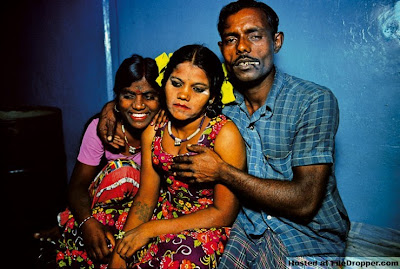
Did you guys catch the cover story of Sunday's New York Times magazine? (Yes: I am currently re-obsessed with everything NYTimes, thanks to all of you for pointing out as much in emails to me...!) Michael Pollen, the closest thing to a demi-god in the world of food (who penned one of my husband's favorite sentences: "Eat food. Not too much. Mostly plants.") makes the case that "cooking" has become a sort of spectator activity to most of America and he concludes that this is a sad, sad shame.
The crux of the article is about the intersection of the growing popularity of watching t.v. shows about cooking (Food Network, Top Chef, etc.) with the corresponding phenom of all of us spending less time than ever actually making meals ourselves. It is pretty weird when you think about it and I could be the poster-child for the odd juxtaposition--I can tell you many, many things about the Top Chef contestants but not once did I watch an episode that informed the admittedly little I do in the kitchen.
According to Pollan, Americans today spend an average of 27 minutes a day on food preparation--less than half of what we spent in 1963. Pollan makes sure to do a tip of the hat to the idea that this might be a certain victory for feminism, but ultimately concludes that "cooking is far more important — to our happiness and to our health — than its current role in our lives..." Pollen may have a hidden pro-cooking agenda. You may get the subtle sense throughout the article that he thinks people who cook are "better" than those who do not. He may use gratuitious French phrases. But, end of the day, he does manage to cite a whole host of reasons----ranging from how cooking brings people together to how home-cooked meals are healtheir than their processed equivalents--to buttress his conclusion that we are going the "wrong" way in terms of our activity in the kitchen.
I have said time and time again that I use the kitchen as another space to online shop. The cheese happens to be closer than in the living room. But my husband loves to cook and we do spend quite a bit of time in the kitchen. And, if I am calculating properly, regardles of my lack of kitchen prowesse, the mere time I spend assembling the simple things I make for my kids puts me above the American average of time spent in the kitchen. But I cannot get over the fact that I hate to cook. That I think the advent of anything that makes cooking easier should be an automatic contender for some sort of National Prize. That I shudder at any article, philosophy, polemic-veiled-as-feature that propogates the idea that "we"--and make no mistake, the "we" here, regardless of my situation, is usually the women--need to cook more.
What do you think? What are your visceral reactions to "cooking"? I have noticed that, in my anecdotal sample, it seems to be the Indian women I know who cook more than the non-Indian ones. I also notice that it is some of these same women who actually do seem to genuinely love cooking. Do you find that to be the case and, if so, why is that so?
Do you think there is a "death of cooking" going on? Should there be?
I'm EATING this up...! Heh.



































